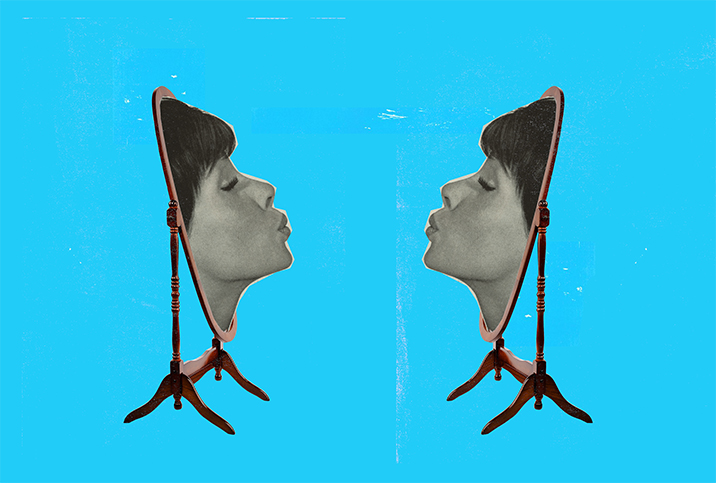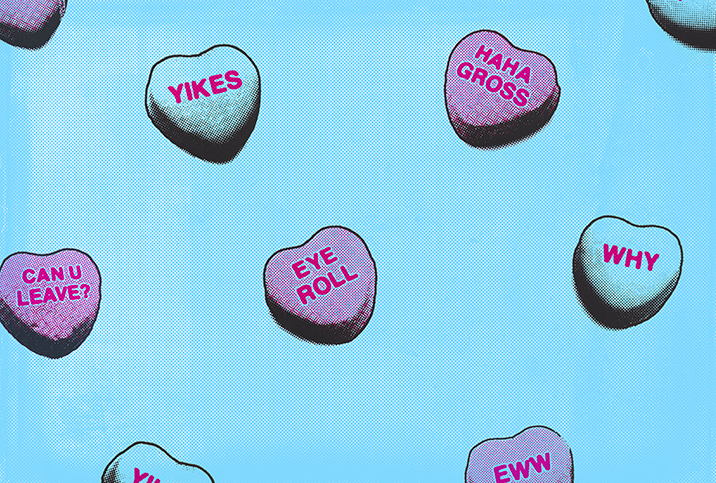The Reason We're Attracted to People Who Look Like Us

When Amy and Jonathan, from Hertfordshire, United Kingdom, went on their first date, just 10 minutes after meeting, Amy asked if they looked related.
"He'd literally been thinking the same thing," Amy said. "It made me question if it was a bit odd to fancy someone who looked similar to me, but then there have been quite a lot of articles about trusting faces that look similar to yours, so we made peace with it."
It's true: Feeling attraction toward someone who looks like you is a surprisingly common phenomenon. Just look at the numerous celeb couples who bear an eerie resemblance to each other.
We may look like our partners because we subconsciously choose people who have a similar upbringing and value system to us.
Amy and Jonathan, who seem to prove the theory, have always wondered if there must be truth in finding your own features attractive when you see them in other people.
Why are there so many lookalike couples?
Science agrees. One 1987 theory in the journal Motivation and Emotion suggested that after 25 years of cohabitation, couples tend to develop the same facial features because of shared emotions and subconscious facial mimicry. Couples actually grow to look more like each other over time.
However, according to more recent studies, these couples may have actually looked alike all along. A 2020 study in Scientific Reports stated, "While spouses' faces tend to be similar at the beginning of marriage, they do not converge over time, bringing facial appearance in line with other personal characteristics."
The reason for this phenomenon is still unclear, but based on recent research, it seems that we do have a natural tendency to find people who look like us more attractive. In one 2013 study in PLOS ONE journal, people were shown edited images of their partners' faces that included features from either a stranger's face or their own. Overall, people consistently preferred the edited face that most closely looked like their own.
A 2010 study published in the Personality and Social Psychology Bulletin found people consistently preferred faces that resembled their parents, suggesting that the tendency to couple with a lookalike stems from a deep-seated desire to repeat the first relationship we saw as children: that of mom and dad.
A study from 2017 in PLOS Genetics looked at gene similarities in white couples and found many couples shared ancestry and, therefore, many genes with each other. The reasons for this, the study suggested, were likely due to the varied factors we consider when picking a mate, namely, local geodemographics, social class, nationality, ethnicity, religion, anthropometric traits such as height and weight, as well as behavioral characteristics. In other words, the study suggested that we may look like our partners because we subconsciously choose people who have a similar upbringing and value system to us, and in Western white communities, these people are more likely to share our ancestry.
Attracted to familiarity
It seems that, yes, we are attracted to people who look like us.
Amy's resemblance to Jonathan gives her a feeling of added intimacy.
"It feels like another thing we have in common, so it makes me feel closer to him overall," she said.
Nevada-based relationship coach Callisto Adams believes our tendency to fall for our doppelgängers is mainly due to our attraction to people who remind us of our parents.
"This is especially vivid to the people who had a troubled childhood relating to their parents," she said. "It's a way of giving another chance to the parent through a partner to look after you and take care of you."
However, this attraction is also common in people with a healthier relationship with their parents.
"They subconsciously seek similarities of a partner with their parents," Adams said. "The person could resemble care and love like their parents did to them."
The practicalities of dating your lookalike
Even though dating a doppelgänger is clearly fairly common, it can still be kind of, well, awkward.
"If other people's perception of you is something that preoccupies you, then dating someone who looks like you could present a problem," Adams explained. "Strangers around you could see the similarities and think of you as siblings or closely family-related, causing them to give you strange looks or even approach to say things to you."
Then again, it all depends on your attitude.
"Jonathan says he finds it entertaining," Amy said. "If there was ever a situation where someone outwardly asked [if we were related], he likes to say yes and then kiss me to freak them out. We actually look more like siblings than we do to our actual siblings, which is quite bizarre."


















